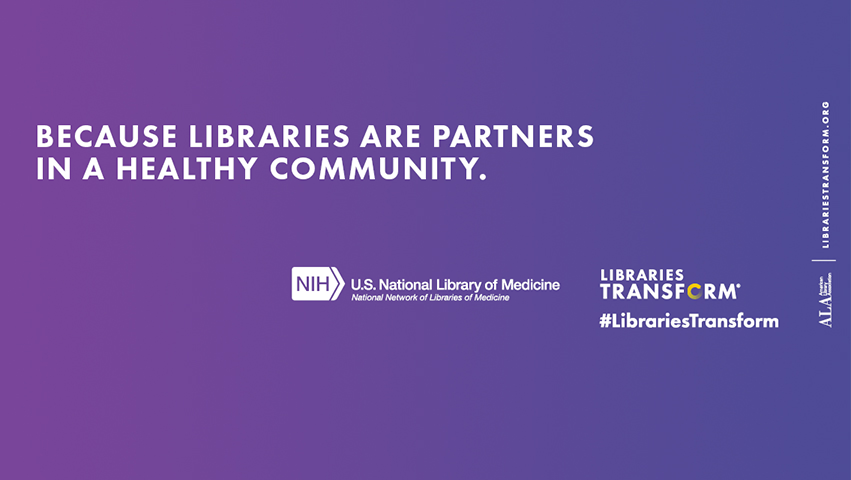CHICAGO – The National Network of Libraries of Medicine (NNLM) and the American Library Association (ALA) have partnered through the Libraries Transform public awareness campaign to create a free toolkit for Health Literacy Month, which is observed in October.
Libraries Transform Toolkit: BECAUSE QUALITY INFORMATION HELPS YOU MAKE BETTER HEALTH DECISIONS.

Helen Osborne M.Ed., OTR/L, started Health Literacy Month in 1999 to raise awareness of the importance of making quality health information accessible to all. More than 90 million U.S. adults have low health literacy, which measures the extent to which someone can access necessary health services, as well as how proficiently he or she can understand pertinent health information.
Public, school, academic and special libraries play a key role in making quality health information accessible to all. Libraries provide their communities with opportunities to improve upon health outcomes through health outreach, programming and partnerships with other regional agencies, as well as offering free access to quality health information and databases that can improve one’s quality of life.
NNLM and ALA’s partnership equips library professionals with customizable tools to raise awareness of how libraries support health literacy in their communities. The toolkit will provide key messages, program ideas and downloadable marketing materials, including bookmark templates and social media graphics, for libraries to use as they promote health literacy in October and throughout the year. The wide-ranging array of health literacy topics covered include nutrition, aging and chronic illness.
The NNLM and ALA’s Health Literacy Month toolkit is available now on the Libraries Transform website. Library advocates interested in learning more about how they can utilize the toolkit can participate in a free webinar on Sept. 14; registration is required, but the session is free and available to all.
Submitted by Marla Sepnafski.

